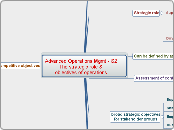Principle of Proportionality
STEP: Outline
Conclusion
The efficiency of principle of proportionality
Summary paragraph
Body Paragraphs
Consequences and impact on society
Practice of proportionality test
Case studies of Egyptian State Council and the American administrative courts
Consequences and impact
Political
Ecomical
Limitation
Separation of powers
Acts of Sovereignty
Scope of application
The 3 pong test
Definition
French State Council
Governmental project vs Public interest
Police measures vs Fundamental rights
United Kingdom - Lord Greene rule 1947
First paragraph: Introduction
How efficient is the Proportionality Test applied by the administrative courts?
Informative sentences
"C'est le contrôle d'adéquation de l'objet de l'acte à ses motifs"
"setting a very high standard of judicial review for invalidation"
Would the judiciary positively affect social and public development?
STEP: Research Sources
SECONDARY SOURCES
Peter Johnston, Proportionality in Administrative Law: Wunderkind or Problem Child - University of Western Australia Law Review
Nathalie Belley, L’emergence d’un principe de proportionnalite - Cahiers de Droit
Aurelien Portuese, Principle of Proportionality as Principle of Economic Efficiency
The proportionality test in UK Administrative Law - a new ground of review, or a fading exception? - The Student Journal of Law
George A. Bermann, The Principle of Proportionality
PRIMARY SOURCES
Arrêt "Ville nouvelle Est" 1971 - French State Council
Arrêt Benjamin 1933 - French State Council
Lord Greene MR rule in Associated Provincial Picture Houses v Wednesbury Coroporation case 1947









